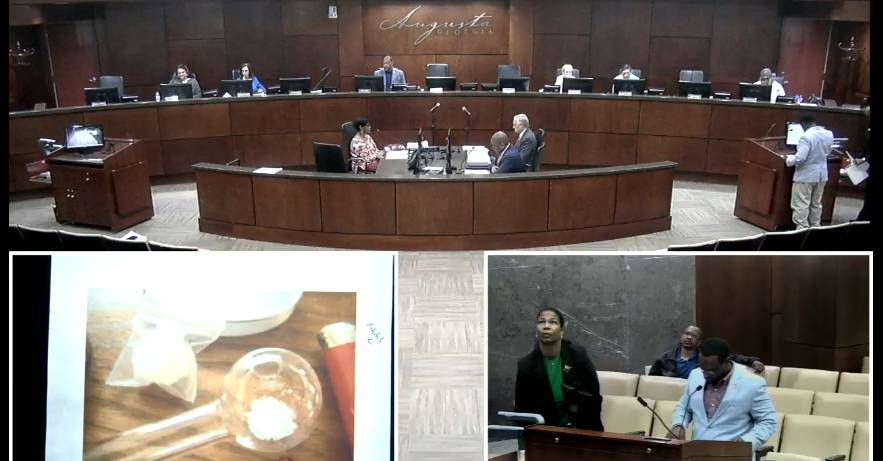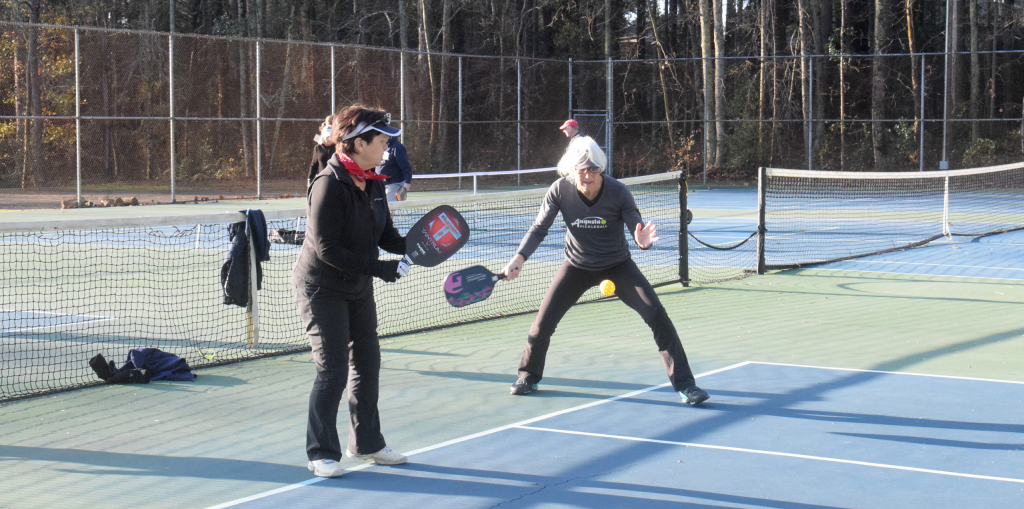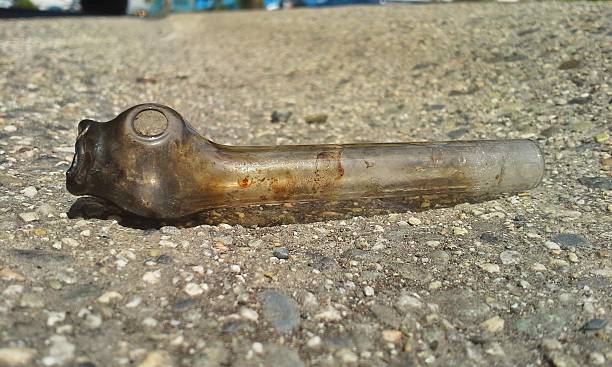Usually when the commission has a delegation or a concerned citizen speak before the body, they listen politely while checking their cell phones before accepting the presentation “as information” and moving on.
That almost happened last Tuesday when local activist Lawrence Brannen spoke before the Administrative Services Committee, but his presentation made enough sense to warrant something other than mere lip service.
Brannen’s concerns were over convenience stores selling items such as glass pipes, digital scales and tiny Ziplock baggies, all items commonly associated with illicit drug use.
According to Brannen, these items are not sold at your local Circle K off the highway, but rather carried by small convenience stores located in low income areas that suffer from high crime and drug use.

I recall years ago noticing my car’s tank was empty, so I pulled into the convenience store on Wrightsboro Road near North Leg to get some gas. Had I known of the store’s reputation, I would have taken my chances with the warning light and gone to another store, but this was before the store was commonly known for the murders that took place in the parking lot.
As I walked into the store to order the gas, I quite literally had to walk a gauntlet of people sidling up and offering to sell me whatever drugs I wanted. I mentioned this to the attendant and he just shook his head and said, “There’s nothing we can do about it.”
This was one of the stores singled out by Brannen as carrying the drug paraphernalia. In the presentation, Brannen said the store owners claimed the tiny baggies were for holding jewelry and quoted Supreme Court Justice Clarence Thomas:
“Who do they think they are fooling?” Brannen asked.
While convenience stores generally seem crammed with everything from cans of Pringles to jars of pickles, I can guarantee you that they do not stock items that tend to sit on the shelves.
About 15 years ago, I owned a fine wine and beverage store, and before I received my state alcohol license, I had to actually go through a training course on what was allowed to occupy the shelves in my store along with the liquor.
Some of the rules were quite draconian.
My store was allowed to carry single-serving bags of chips, but not “family-sized” bags. We could sell shot glasses and wine flutes, but not tumblers or coolers.
Since convenience stores now routinely sell liquor, I assume that the rules have been eased; there is no way I would have been allowed to sell glass pipes at my store. The state revenue agent would have closed me down.
Brennan asked the commission to explore the law and determine if there was a way to prevent the stores from selling what is essentially drug paraphernalia. The law may allow these sales, but at least the commission agreed to look into it.
City in a pickle over pickleball
Also at Tuesday’s meeting was an item to reject the “unsolicited proposal” regarding bringing a large pickleball complex to Augusta.
Commissioner Brandon Garrett questioned Darrell White, the interim Procurement Department director as to why the commission was being asked to reject a proposal as, in his memory, proposals are routinely rejected without the commission’s involvement.
If White was being honest, he may have said, “so these people will leave us alone and stop asking for meetings.”

Instead, he gave a meandering excuse that seemed to indicate that Dr. Troy Akers, owner of Dink’d Pickleball complex in Martinez, wanted to raid the city’s SPLOST pickle jar for his pickleball project.
The Augusta Press has run several stories about Akers’ project and he told the commission that the newspaper was where he learned that the city had scrapped his proposal without so much as a courtesy call.
As it turns out, Akers had submitted a roughly 50 page proposal of his plans, but it seems like city personnel simply dumped the proposal into the nearest trash can and set it ablaze.
They then passed the burning dumpster from department to department, stymying Akers’ attempt to answer questions or get a meeting with the city administrator.
As it turns out, Akers has about 90% of the funding in place and has applied for and been approved for a grant through the United States Tennis Association that would reimburse the city for the 10% in funding that is being requested as part of a public/private partnership.
Akers says he only mentioned the outlay in SPLOST 8 as proof that the citizens of Augusta want to grow both tennis and pickleball, not that he or his associates were requesting the city reprogram funding from SPLOST, something they legally cannot do unless a voter approved project is completed under budget leaving excess funds.
The committee agreed to work with Akers rather than reject the entire idea, which means that Akers may finally get his audience with the administrator sometime in 2040.
Scott Hudson is the Senior Investigative Reporter, Editorial Page Editor and weekly columnist for The Augusta Press. Reach him at scott@theaugustapress.com












